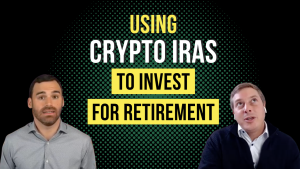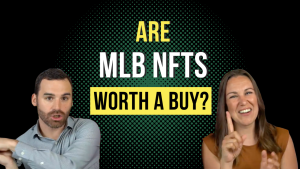Cryptogic provides tools, information, and commentary focused especially on cryptocurrencies, financial and cryptocurrency markets, economic trends, and trading strategies; these tools, information, and commentary are provided for general information purposes only. Neither Cryptogic nor any of its owners or employees are financial planners, investment advisors, or broker-dealers in any jurisdiction. Cryptogic does not provide investment advice, investment services, legal advice, legal services, tax advice, or tax services. Cryptogic does not contain, or constitute, and should not be interpreted as legal advice or opinion. Cryptogic is not a substitute for professional investment advice, tax preparation or legal advice. Consult an investment, tax or legal professional for specific advice about your situation. Click here to read our Website Terms of Use.
Should You Invest In Polygon In 2022?

Polygon is a Layer 2 scaling solution built on top of the Ethereum network that offers solutions for payments, dApps, and more. But is it worth buying Polygon tokens? When looking at altcoins, there are many factors to consider before investing.
Scott explores the positive signs, the controversies/criticisms of Polygon, and his own MATIC investment thesis in this episode.
Watch On YouTube
Episode Highlights
Polygon raises $450M from Sequoia Capital India, SoftBank and Tiger Global: “Ethereum has attracted the largest developer ecosystem for any blockchain, but it’s plagued by slow speeds and high transaction costs (also known as gas fees). Polygon is among a handful of so-called Layer-2 or side-chain firms that are attempting to help Ethereum’s network solve its growing pains by employing techniques to move a wide range of transaction information off the blockchain. Moving a lot of details off the Ethereum blockchain allows Polygon to pack more transaction details on an Ethereum block and significantly scale the number of transactions it can process.” (TechCrunch)
Polygon commits to going carbon neutral in 2022: “Polygon is collaborating with KlimaDAO, an organization of developers that provides on-chain carbon offsetting technology, as well as Offsetra, which provides Polygon with an analysis tool that gauges the network’s carbon intensity. By analyzing emissions from staking node hardware or bridging activities and the energy consumption from interacting with Ethereum Mainnet, they can better form a management strategy.” (Cointelegraph)
Today’s Cryptocurrency: Polygon (MATIC)
- Polygon Website (Official)
- Polygon on Discord
- Polygon on Instagram
- Polygon on LinkedIn
- Polygon on Twitter
About The Show
Cryptogic is the show for crypto investors who are focused on long term results. Follow host Scott as he explores the investable world of blockchain technologies, Bitcoin, Ethereum, and other cryptocurrencies.
Connect With Cryptogic
- Watch Cryptogic on YouTube
- Listen to Cryptogic on Apple Podcasts
- Listen to Cryptogic on Google Podcasts
- Listen to Cryptogic on Spotify
- Follow Cryptogic on Twitter
Transcript
Scott: Hello, Scott here. And welcome to another episode of Cryptogic. Today, we are continuing our series on altcoins, and we’re going to be specifically talking about Polygon or MATIC, MATIC is the symbol, it’s really called Polygon, and if you should invest in it and why you should.
And full disclosure, I own some Polygon tokens. I am a big believer in it. I’m bullish on it, and I’m going to cover why I’m bullish on it, maybe some of the controversies around it and criticisms, and just give you a basic overview of what Polygon is and why it might be something to consider for your cryptocurrency portfolio. So let’s start with the easy question.
What is Polygon? And if you look here, you’ve got their website, it’s bringing the world to Ethereum. And this is really important because Polygon is a Layer 2 blockchain technology. So it is built on top of the Ethereum network. And that really does matter because what Polygon, again, or MATIC does is it aims to solve some of the limitations of Ethereum’s network.
We’re talking about limitations with scalability. We’re talking about the issues with the cost. We’re talking about gas fees when it comes to Ethereum transactions. We’re talking about really providing a platform for developers to develop DeFi apps to really, as you see, scale their performance.
These are all things that Polygon does. And it really does want to leverage Ethereum’s internet of blockchains. That’s essentially what they want to be and Polygon launched under the name MATIC, the MATIC Network rather, in 2017. So one of the big differences with Polygon versus Ethereum is again, Ethereum achieves consensus with proof of work.
And what Polygon does is they achieve consensus on the blockchain with proof of stake. And again, this helps them with that scalability. It helps them with the speed of transactions and all of the things that a lot of folks, when they’re criticizing, well, Ethereum or Bitcoin, or many other Layer 1 cryptocurrencies that are using proof of work, it really addresses those considerations there.
So this is why folks are excited about Polygon because, you know, we know Ethereum is a powerful, powerful blockchain. We know that their tokens have a tremendous amount of value, but there are those built-in limitations. So if we go and look at the financial side of Polygon, it becomes a little more clear just why there is also this excitement around them.
So looking at the top current cryptos by Market Cap, scroll down a little bit, and there’s Polygon sitting there at number 18. Now, okay, it’s not top 10, but it’s top 20. And that really does speak to a lot of the belief in Polygon. And you can see it’s been beaten up a little bit recently, as many cryptocurrencies have been, but nonetheless clearly a tremendous amount of interest in Polygon, a tremendous amount of folks who have Polygon or MATIC as part of their cryptocurrency holdings.
So let’s talk about the controversies around Polygon. There’s really not too many controversies, when we’re talking about it. But one of the big things is that Polygon is not an autonomous blockchain. It is a Layer 2 solution.
So once again, if Ethereum’s Layer 1, Polygon’s Layer 2, and it’s built on top of the Ethereum network. And so if the Ethereum platform experiences major disruptions, if there’s any issues with that, if anything like that happens to the Layer 1 technology, then that can impact Polygon. And then there’s also criticism from just a pure investment standpoint.
When you have something that is intimately tied to something else, that kind of limits it. You look at…you know, there’s always the strengths and weaknesses of an investment. What are the threats? Well, that is a built-in, I guess, potential weakness for Polygon is that it is so tied to the Ethereum network.
It is built on top of that. If there was a serious disruption, and we’re talking about the value of the MATIC tokens, they would take a tremendous hit. The second is the limited use cases for MATIC. So unlike other cryptocurrencies, MATIC really is designed to govern and secure the Polygon platform and pay transaction fees.
But unlike other digital currencies, MATIC is not generally being used for everyday purchases. And I’m a big, big believer in payments and payments technology. And I think that, with crypto, that is one of the biggest areas of opportunity if you can solve that. And Polygon isn’t really going that way. They don’t necessarily have a huge payments aspect to them.
So that’s one of the things where, when you’re talking about criticisms and limitations, it’s, well, what really is the use case for MATIC? And then lastly, and I’ve spoken about this before, Polygon has accepted VC funding. In fact, just here in February of this year, Polygon raised $450 million from Sequoia Capital India, SoftBank, and Tiger Global.
You can see there’s a lot of different organizations and folks who have invested in Polygon. And some names you might have heard of, Alexis Ohanian of Reddit fame, and then, of course, Kevin O’Leary as well. These are folks who have invested in Polygon and invested in their infrastructure. And a lot of folks really are…that’s a criticism because they feel that VC investment goes against the ethos of cryptocurrency.
It goes against the ethos of DeFi and that there can be a tremendous amount of influence that a small few then have over the direction of the project, of the blockchain, of this platform. Well, all that said, why am I still bullish on Polygon? And there’s a number of reasons.
First, I actually think that the VC investment is a strength. And I’ve said this before, again, of course, the ethos of you want to have a decentralized currency, you want to have power to the masses, but I think that if you have folks like Alexis Ohanian, you have Kevin O’Leary, these are pretty smart guys who have had a lot of success when we’re talking about investment and identifying projects and companies that are poised for a tremendous amount of return.
They don’t just throw money at things that they don’t think are going to generate returns for them. To me, that’s a bullish signal on what Polygon is doing. And they’re privy to conversations and in-rooms that I’m not in, but I assume that some good conversations are happening and if things were going away, and if plans, if the roadmap didn’t look so good to them, they wouldn’t invest in it.
They wouldn’t be really interested in it. So when we’re talking about the MATIC network, that is something that I do think has a tremendous amount of value. Secondly, I love what Polygon is doing with NFTs. Ethereum is not going away and Polygon works to solve many of Ethereum’s inherent issues, which, in my mind, gives it a ton of value.
When you are investing in NFTs, those gas fees are not insignificant. In fact, they can make the pure return and potential financial benefit of owning an NFT much more difficult to realize. So when you have a network that is built on top of the Layer 1 Ethereum blockchain, and it can have transactions where it’s gas-free for you to buy and sell NFTs, really lean into that trading aspect, to me, that is tremendously exciting and that offers a tremendous amount of upside if you are owning MATIC, if you’re owning one of those tokens.
And then the other piece that I’m actually very bullish on Polygon for is their commitment to going carbon neutral. And they have this commitment in 2022, that they want to be carbon neutral. And again, that goes back to the difference of proof of work versus proof of stake.
And there’s a lot of criticism about cryptocurrency, about NFTs from those on Capitol Hill and on Twitter and elsewhere about the environmental impact. Well, Polygon is saying, you know what, we’re going to go green. We see this criticism and we have developed a network that we believe will allow for less use of energy, that will have lower fees, that will really solve some of these criticisms and address them head-on.
And then when I look at folks that are interested in that, folks who are, you know, whether you’re the millennial generation or younger, people who are the consumers, the crypto investors of the future, these are issues that are important to them. So when I’m looking at something that has potential, well, having an environmental bend to it and having this commitment, I think, is a bullish signal.
I think that helps with press, helps kind of allay some of that criticism. And then if you’re talking about the politics of it and folks on Capitol Hill and what they might say, well, if you can point to look at what we’re doing, look at how we’re approaching this from a green aspect, well, that means that maybe regulations might not hit them as hard.
Maybe the heat won’t be quite as heavy. So anytime there’s a huge threat from a politician or a really bad hit piece from a news article, you’ll see that price drop, you’ll see that relevant crypto really take a hit. And that’s where, I think, when we’re talking about the environmental aspect, there is value to it.
Now, the pushback might be, well, how much are they investing in this? And is that wasted money, are they not developing the technology? I think you can have both and when you’re talking about that. And if I were to sum it up, Polygon is a blockchain that really does provide scalable, secure, and instant transactions with Ethereum currencies.
And that brings so much to the table. So whether you’re buying NFTs, and the Polygon NFTs have gotten a lot of hype, or you are just investing in a cryptocurrency that isn’t Bitcoin, that isn’t Ethereum. I believe that Polygon, when we’re talking about Layer 2 technologies, really has a lot to bring to the table.
And so that’s why I’m bullish on Polygon. And maybe it’s something worth considering investing in.



